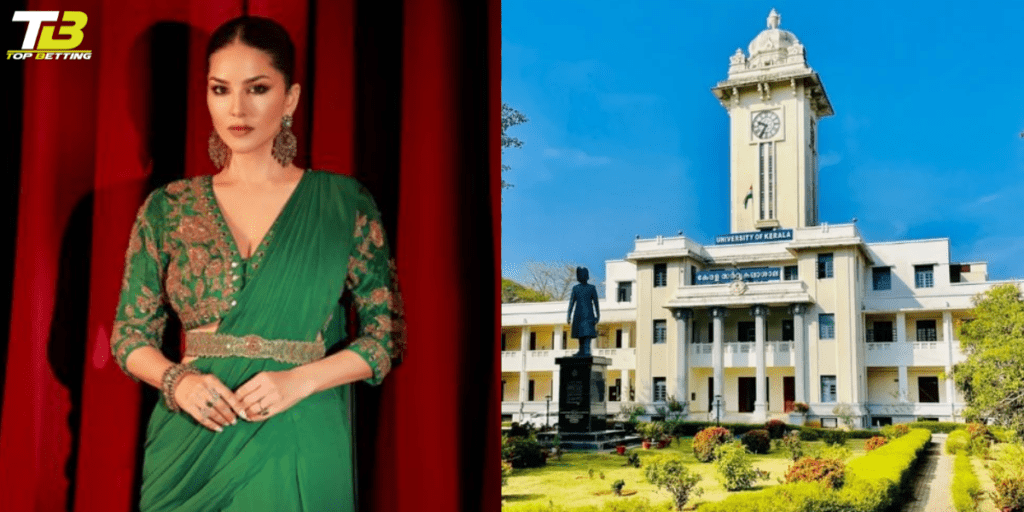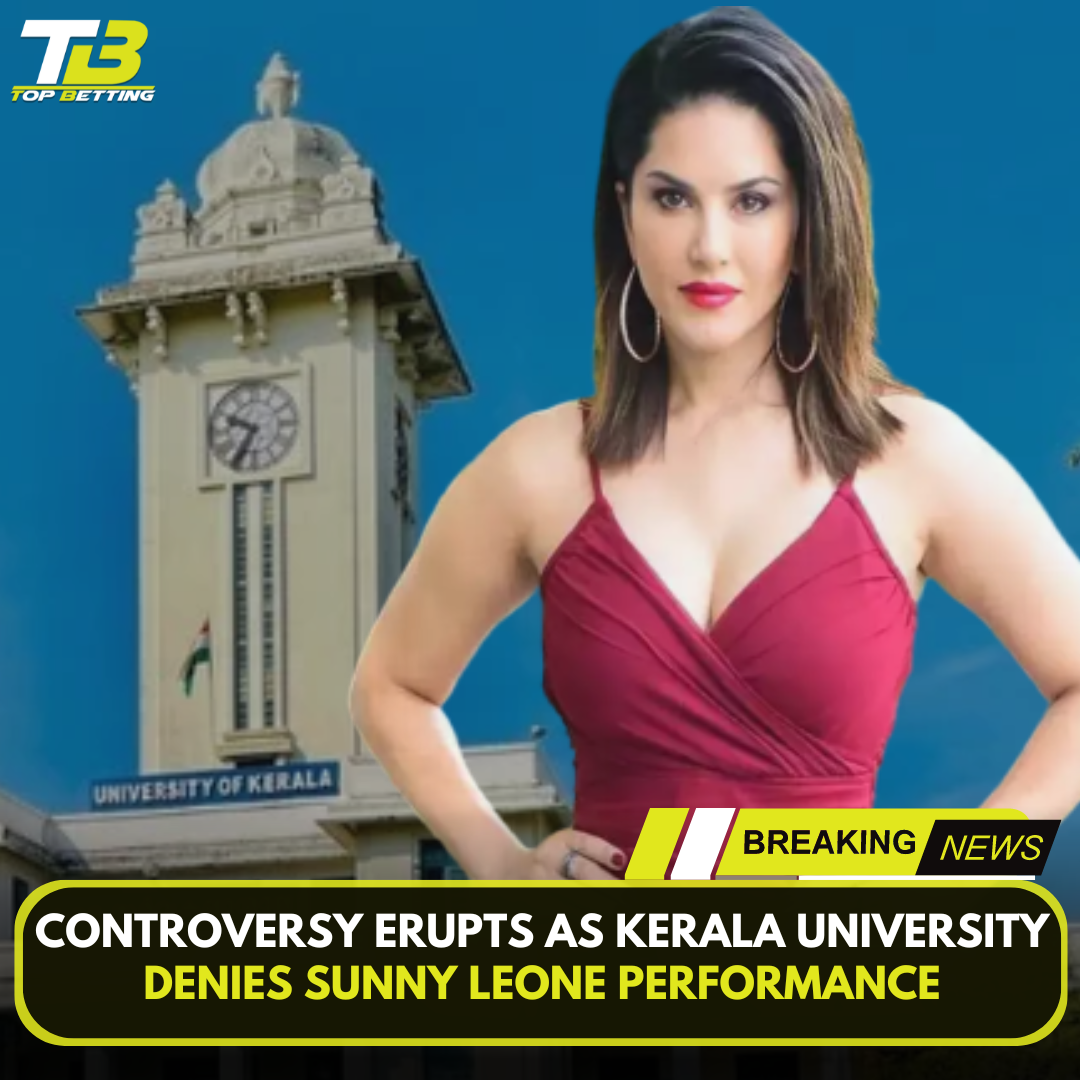
Kerala University Denies Sunny Leone Performance
In a move that has sparked widespread debate, the vice-chancellor of Kerala University has denied permission for a scheduled dance performance by Bollywood actor Sunny Leone. The event, which was slated to take place on the campus of the University College of Engineering in the state capital of Thiruvananthapuram, has been abruptly canceled, much to the disappointment of the organizers and fans.
This decision by the university authorities has reignited the ongoing discourse surrounding the role of artistic expression and the boundaries of moral policing in Kerala’s sociopolitical landscape. As the news of the canceled Sunny Leone performance spreads, it has become the center of a heated discussion, with proponents and critics voicing their perspectives on the matter.
The Scheduled Sunny Leone Performance
According to reports, the Sunny Leone performance was initially scheduled for early July at the University College of Engineering in Kerala. The event was anticipated to be a significant draw, with fans eagerly awaiting the opportunity to witness the Bollywood star’s dance showcase on the university campus.
However, the vice-chancellor of Kerala University, Dr. Mohanan Kunnummal, swiftly intervened and instructed the registrar to ensure that the college university did not include Leone’s show in the program list. This decision was reportedly made in response to concerns raised by various stakeholders within the university community.
Reasons Behind the Cancellation
The primary reason cited for the cancellation of the Sunny Leone performance was the potential for public unrest and controversy. The university authorities, led by the vice-chancellor, expressed concerns that the event could lead to a disruption of the academic environment and potentially jeopardize the safety of the students and faculty.
Furthermore, there were allegations that the performance might be viewed as a violation of the university’s moral and ethical standards. Some members of the university community argued that the presence of a Bollywood actor known for her bold and sensual on-screen persona would be inappropriate and unacceptable within the academic setting.
The Aftermath and Reactions
The decision to deny permission for the Sunny Leone performance has generated a significant backlash, with many criticizing the university’s actions as an infringement on artistic freedom and individual choice. Supporters of the event have accused the authorities of moral policing and stifling creative expression.
On the other hand, those who applaud the vice-chancellor’s decision argue that the university has a responsibility to uphold its values and ensure a conducive learning environment for its students. They contend that the Sunny Leone performance would have been a distraction from the academic focus and could have potentially led to undesirable consequences.
The Broader Implications
The controversy surrounding the canceled Sunny Leone performance in Kerala University is not an isolated incident. It reflects a larger societal debate about the boundaries between artistic expression, personal freedoms, and the preservation of cultural and moral norms.
This incident highlights the ongoing tensions between progressive and conservative forces within Kerala’s sociopolitical landscape. It underscores the need for a nuanced and inclusive dialogue that balances the rights of artists and individuals with the concerns of the broader community.
The Role of University Authorities
The decision-making process of the Kerala University vice-chancellor and the registrar has come under intense scrutiny. Critics argue that the authorities have overstepped their bounds and infringed on the rights of the organizers and the audience.
However, proponents of the decision assert that the university has a responsibility to maintain a safe and conducive academic environment. They contend that the vice-chancellor’s intervention was a necessary measure to prevent potential disruptions and uphold the institution’s core values.
The Implications for the Arts and Entertainment Industry
The cancellation of the Sunny Leone performance in Kerala University has broader implications for the arts and entertainment industry in the state. It raises concerns about the ability of artists to freely express themselves and engage with their audiences without fear of censorship or backlash.
This incident may also have a chilling effect on the willingness of other artists and performers to participate in events hosted by academic institutions in Kerala. It could potentially lead to a climate of self-censorship and a reluctance to push the boundaries of artistic expression.
The Role of Public Opinion and Media
The controversy surrounding the canceled Sunny Leone performance has garnered significant attention from the media and the public. The coverage of the event has been extensive, with both traditional and social media platforms playing a crucial role in shaping the narrative and public discourse.
The reactions and opinions expressed by the public have been diverse, ranging from outrage and support for the university’s decision to calls for a more open and inclusive approach to artistic expression. The media’s role in amplifying these voices and framing the debate has been instrumental in shaping the broader societal discourse.
The Need for Balanced Dialogue
As the debate over the Sunny Leone performance in Kerala University continues, there is a pressing need for a balanced and inclusive dialogue that considers the perspectives of all stakeholders. This includes the university authorities, the organizers, the artists, the students, and the broader community.
Such a dialogue should seek to find a middle ground that respects the rights of individuals, upholds the values and responsibilities of academic institutions, and fosters an environment that encourages the flourishing of the arts and creative expression.

Conclusion
The controversy surrounding the canceled Sunny Leone performance in Kerala University is a complex issue that reflects the ongoing tensions between personal freedoms, cultural norms, and the role of academic institutions in shaping societal discourse. As the debate continues to unfold, it is crucial that all parties involved engage in a constructive and nuanced dialogue to find a balanced solution that respects the diverse perspectives and interests at play.











